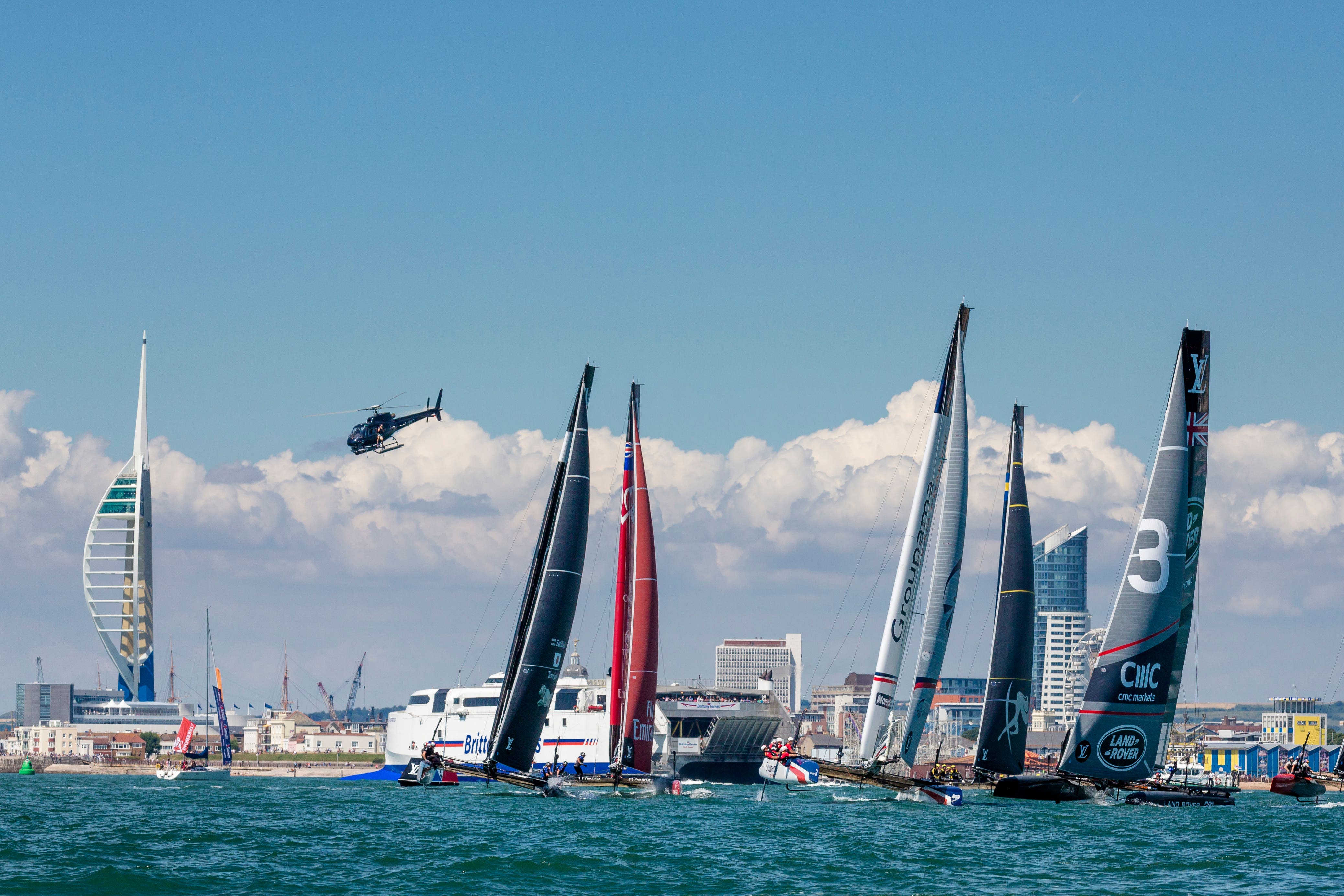Sailing events could harm marine life due to underwater noise, study finds
Acoustic noise levels were checked near the course of the America’s Cup in the Hauraki Gulf, New Zealand, in 2021.

International sailing events could be harming marine wildlife because of underwater noise pollution from vessels, researchers have warned.
Marine mammals, fishes and invertebrates which rely on intricate hearing systems for processes to forage, communicate, reproduce, and avoid predators, could be harmed by sustained noise from hundreds of motorised boats, a study has found.
Research led by Heriot-Watt University’s Institute of Life and Earth Sciences in Edinburgh found that noise from large groups of spectator boats was loud and sustained for long enough to cause stress and even force marine life out of natural habitats.
Thousands of sailing regattas are staged around the world every year but researchers said that events should make greater efforts to limit the potential impacts of underwater noise from motorised vessels.
The research, published in Marine Pollution Bulletin, involved collecting and measuring acoustic recordings around racecourses during the 36th America’s Cup in the Hauraki Gulf, New Zealand, in 2021.
The international yachting race – the world’s largest competitive sailing event – has been staged since 1851 and attracted almost 300,000 in-person visitors.
An estimated 10,468 vessels attended the three different race events between December 2020 and March 2021, with around 300 vessels a day sailing to and from the racecourses at regular intervals, according to researchers.
The findings were published in a paper, Not so silent spectators: How spectator vessels at international sailing regattas alter marine soundscapes.
Sound level increases were noted several kilometres beyond the racecourse’s boundaries and remained high well beyond the duration of the races.
On a typical race day, sound levels around the racecourse were five decibels higher than when no racing took place – roughly more than three times normal sound energy levels.
Protection measures taken by event organisers, such as restricting spectator vessel speeds to five knots to reduce the risk of striking marine mammals, will also have helped reduce underwater noise levels, it was acknowledged.
However, ideas for further improvements included introducing designated areas for spectator vessels, as well as using marine mammal detection platforms to identify visually, or acoustically, when animals are nearby, so best noise practices could be adopted.
Noise pollution can also cause some species to avoid or move away from their original habitats
Staggering the exit to break up spectator flotillas into smaller groups, encouraging spectators to watch from land locations, and guidance on behavioural changes to reduce the amount of noise from their vessels were also suggested – including avoiding sudden speed changes.
Matt Pine, an honorary research fellow at Heriot-Watt’s School of Energy, Geoscience, Infrastructure and Society, said: “When sailing events like larger regattas are being planned, the potential impact of underwater noise pollution from spectator flotillas should be considered, especially for events happening in ecologically significant areas.
“Underwater noise from motorised vessels is particularly problematic, as studies have found it increases stress levels in many marine species and can reduce their success in reproduction, foraging and social interactions.
Mr Pine, a marine scientist specialising in ocean bioacoustics – the science of how sound affects animals – has a PhD in Marine Science from the University of Auckland in New Zealand.
He added: “Noise pollution can also cause some species to avoid or move away from their original habitats.”
America’s Cup organisers have been contacted for comment.
Bookmark popover
Removed from bookmarks